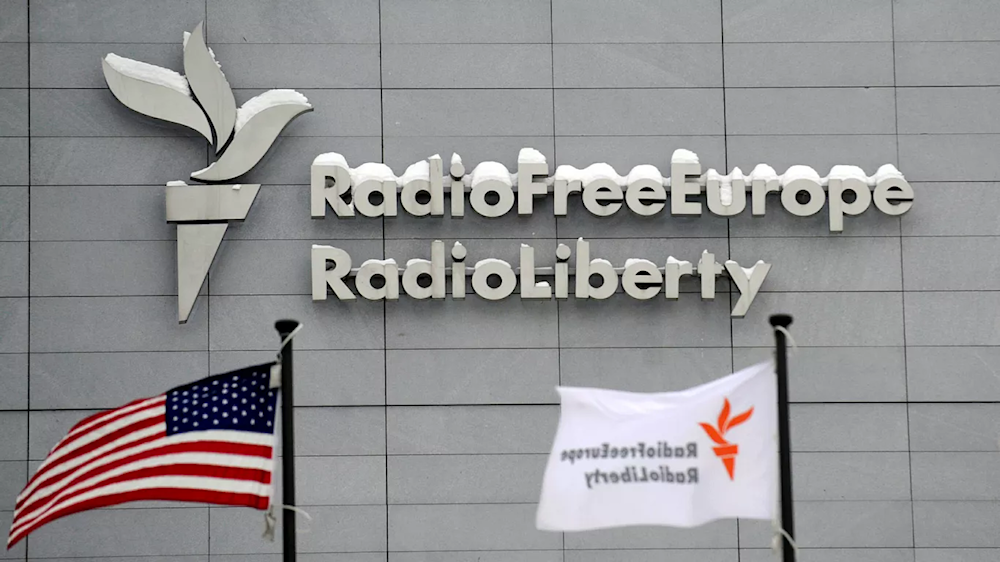EU gives €5.5 mln lifeline to US' Radio Free Europe amid funding cuts
The EU pledged €5.5M in emergency aid to Radio Free Europe after US budget cuts, warning the outlet faces shutdown in Russia, Belarus, and beyond.
-

The headquarters of Radio Free Europe/Radio Liberty (RFE/RL) in Prague, 15 January, 2010 (AP)
The European Union has pledged €5.5 million in emergency aid to Radio Free Europe/Radio Liberty (RFE/RL), stepping in to stabilize the outlet after US budget cuts left it on the brink of collapse.
The move highlights the EU’s concern over preserving Western-aligned media in regions like Russia, Belarus, Iran, and Central Asia, areas where Radio Free Europe funding is seen as politically strategic.
Originally launched in the 1950s as a covert CIA operation during the Cold War, RFE/RL is today overseen by the US Agency for Global Media (USAGM).
However, the agency’s future was thrown into uncertainty when US President Donald Trump issued an executive order in March eliminating most of its funding as part of efforts to cut back what his administration labeled "unnecessary bureaucratic arms."
Musk questions relevance of Cold War-era outlet
Despite official backing, RFE/RL’s role as a Western propaganda outlet remains contentious. Once funded covertly by the CIA, the outlet has faced scrutiny for promoting a US-centric narrative in post-Soviet regions.
Yes, shut them down.
— Kekius Maximus (@elonmusk) February 9, 2025
1. Europe is free now (not counting stifling bureaucracy). Hello??
2. Nobody listens to them anymore.
3. It’s just radical left crazy people talking to themselves while torching $1B/year of US taxpayer money. https://t.co/PnmN4erD91
The controversy has been further inflamed by public figures such as Elon Musk, now head of the Department of Government Efficiency (DOGE), who posted on X (formerly Twitter) in February, “Nobody listens to them anymore.” Musk has publicly called for both RFE/RL and Voice of America to be shut down.
As legal challenges continue and financial uncertainty deepens, the future of RFE/RL remains in limbo. EU officials argue that their aid is symbolic as much as financial, meant to signal that Europe sees the struggle for influence in the media space as critical to its broader foreign policy goals.
Trump-era cuts leave RFE/RL in crisis
Since the defunding decision, RFE/RL has furloughed staff, suspended programming, and initiated legal action. Although a Washington judge briefly halted the order in April, a federal appeals court later blocked the release of funds pending further review.
The outlet has warned of potential shutdowns in multiple regions, citing the inability to pay staff or produce local content.
Speaking at a meeting of EU foreign ministers on Tuesday, EU foreign policy chief Kaja Kallas described the €5.5 million commitment as “short-term emergency funding” to help keep the outlet afloat.
“In a time of growing unfiltered content, independent journalism is more important than ever,” she said, adding that the package would serve as a “safety net” rather than a permanent solution.
While acknowledging that Brussels cannot fully replace US financial backing, Kallas called on EU member states to provide further support.
The EU’s assistance package is intended to help RFE/RL maintain operations in regions considered vital to Brussels’s strategic communication interests.
However, questions persist over the outlet’s relevance and mission. Critics argue that RFE/RL, alongside its sister outlet Voice of America, has drifted from its original mandate and now operates as a vehicle for the dissemination of propaganda.
RFE/RL President Stephen Capus rejected those claims, calling Trump’s funding cuts a “massive gift to America’s enemies.” He said the move has emboldened authoritarian regimes and undermined US and European efforts to maintain a media presence in sensitive geopolitical areas.
Last week, the Trump administration laid off nearly 600 employees at Voice of America, adding that the firings targeted mostly journalists and contractors, amounting to more than a third of their workforce.

 4 Min Read
4 Min Read










